I hear a lot of things about Kosovo, living in Serbia. I hear that it is the heart of Serbia, that Serbia is nothing without it. I hear that the people who live there have pushed the Serbs out, that America is to blame because of that. I knew that what once was a province in the Former Yugoslavia was (as of 2008) an independent state. I knew that the conflict was bloody, violent and extreme.
It wasn’t until I was actually in Priština, Kosovo with my SIT coordinators, my classmates and my professors, listening to the stories and visiting the memorials and touching the destroyed schools and buildings that I began to really understand:
No one is clean in war.
It’s easy to say that when you haven’t seen the destruction first hand. It’s easier for me to say, never having been directly exposed to anything tangible. Every conflict, war or fight that I know of is “over there”, or “not where I live.” So it’s easy for me to say that when two sides are in conflict, they’re both at fault for committing atrocities.
It isn’t easy when your family has been killed, when your life has been destroyed, when your home has burned to the ground and you breathe the toxic chemicals left in the wake of a 78 day bombing campaign.
I walked the symbolic trail of blood of Adem Jashari’s family. 56 people were brutally murdered by Serbian Police, 25 of which were women and small children, because they were Albanian rebels protecting their home and family.
I touched the holes left behind from grenades and guns.
I stood in the burned house that use to be the place where Albanian students were sent, when public education began “separate” schooling for Albanian children, like different entrances.
But I’ve also seen the craters left in buildings in Serbia- I’ve visited war memorials, civilian memorials and heard the stories of Serbian refugees from Kosovo.
(This isn’t my photograph. It’s a photograph taken after an air raid in Serbia)
It wasn’t until I saw both sides- felt the air and loss and despair in both places, that I truly understood. No one is clean in war.
My heart bleeds for all. It’s a sentiment that isn’t shared.
Before I went to Kosovo I was told not to worry. I was told that the Kosovo Albanians would love me, that they love all Americans. That Americans were like heroes.
Because of the bombings.
In 1999 NATO began humanitarian intervention in response to ethnic cleansing. Over a span of 78 days bombings occurred.
I was told from a woman that “the bombings saved my life.”
“NATO launched 2,300 missiles at 990 targets and dropped 14,000 bombs, including depleted uranium bombs and cluster munitions”
I’ve included this link if anyone is interested in looking more into the NATO bombings. This is just one small article that might get you started looking into more. https://www.rt.com/news/yugoslavia-kosovo-nato-bombing-705/
I could go on. I could write more about what it was like being at th e memorial dedicated to the 20,000 women and men raped as a method of war. Or about the UN forces that still surround a Serbian monastery that I visited, protecting it, and the people from destruction.
e memorial dedicated to the 20,000 women and men raped as a method of war. Or about the UN forces that still surround a Serbian monastery that I visited, protecting it, and the people from destruction.
I was given the chance to see the lasting consequences on both sides of a bloody war. I don’t know what it’ll take to end the conflict and tension that is ever present today.
I only know that no one leaves something so brutal and violent as a war unscathed.
Peja, Kosovo.

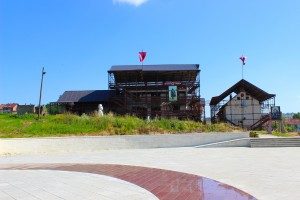
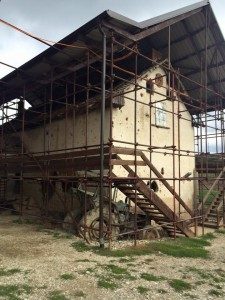
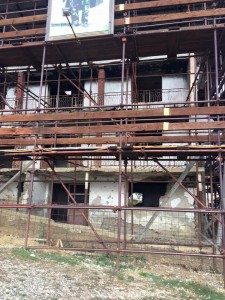
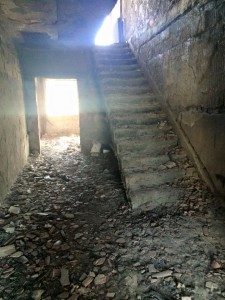
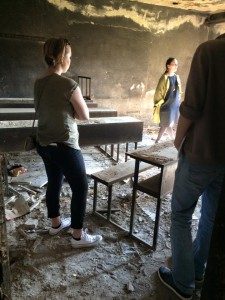
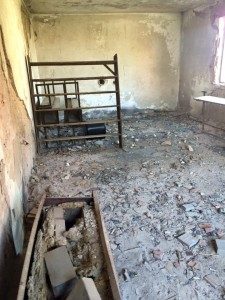
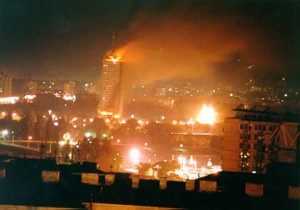
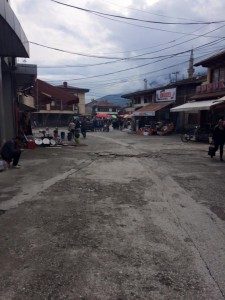
Your blog post and observations about the impact of war was very powerful to read. I know that SIT provides students with the opportunity to conduct research; is there a particular topic that you are interested in exploring?